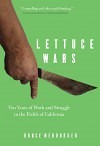Political Economy
Who could have imagined the 2008 presidential campaign?
Commentators, media people, and especially politicians fell all over themselves proclaiming that the 2008 election had, “nothing at all to do with race.” And yet every event, every speech and comment, every debate and appearance had race written all over it. Stephen Colbert, the brilliant satirist, hit it on the head when he asked a Republican operative, “How many euphemisms have you come up with so far so that you won’t have to use the word ‘Black?’” Everyone laughed good-naturedly. | more…
In 1987, in the introduction to their Stagnation and Financial Explosion, Monthly Review editors Harry Magdoff and Paul Sweezy wrote: “We both reached adulthood during the 1930s, and it was then that we received our initiation into the realities of capitalist economics and politics. For us economic stagnation in its most agonizing and pervasive form, including its far-reaching ramifications in every aspect of social life, was an overwhelming personal experience. We know what it is and what it can mean; we do not need elaborate definitions or explanations. But we have gradually learned, not altogether to our surprise of course, that younger people who grew up in the 1940s or later not only do not share but also do not understand these perceptions. The economic environment of the war and postwar periods that played such an important part in shaping their experiences was very different. For them stagnation tends to be a rather vague term, equivalent perhaps to a longer-than-usual recession but with no implication of possible grave political and international repercussions. Under these circumstances, they find it hard to relate to what they are likely to regard as our obsession with the problem of stagnation. They are not quite sure what we are talking about or what all the fuss is over. | more…
With U.S. capitalism mired in an economic crisis of a severity that increasingly brings to mind the Great Depression of the 1930s, it should come as no surprise that there are widespread calls for “a new New Deal.” Already the new Obama administration has been pointing to a vast economic stimulus program of up to $850 billion over two years aimed at lifting the nation out of the deep economic slump. | more…
This year marks the eightieth anniversary of the 1929 Stock Market Crash and the beginning of the Great Depression, the worst economic crisis in the history of capitalism. However, while the Great Depression has been very much in the news of late, this is not due so much to this anniversary as to the fact that for the first time since the 1930s an economic crisis has arisen on a scale and of a nature that invites direct comparison with that earlier deep downturn, which threatened the entire system and ended in the Second World War. | more…

In 1971, Bruce Neuburger–young, out of work, and radicalized by the 60s counterculture in Berkeley–took a job as a farmworker on a whim. He could have hardly anticipated that he would spend the next decade laboring up and down the agricultural valleys of California, alongside the anonymous and largely immigrant workforce that feeds the nation. Part memoir, part informed commentary on farm labor, the U.S. labor movement, and the political economy of agriculture, Lettuce Wars is a lively account written from the perspective of the fields. | more…
The historic testimony by former Federal Reserve Board chairman Alan Greenspan before the House Committee of Government Oversight and Reform on October 23, 2008, represented such a startling turnaround for an individual previously given such nicknames as “Maestro” and “Oracle,” that it might well have been entitled “The Education of Alan Greenspan.” Taken to task for the enormous and still growing economic disaster, Greenspan acknowledged that he was “shocked and dismayed” by the emergence of what he called a “once-in-a-century credit tsunami.” In his effort to account for the complete failure of foresight at the Fed, Greenspan explained that the supposedly sophisticated asset pricing models that he and others in the financial community had relied on had been based almost exclusively on the experience of the last two decades during a period of rapid financial expansion, and had failed to incorporate the negative shocks visible from a longer-term historical perspective. As Greenspan himself put it | more…
“The first rule of central banking,” economist James K. Galbraith wrote recently, is that “when the ship starts to sink, central bankers must bail like hell.” In response to a financial crisis of a magnitude not seen since the Great Depression, the Federal Reserve and other central banks, backed by their treasury departments, have been “bailing like hell” for more than a year. Beginning in July 2007 when the collapse of two Bear Stearns hedge funds that had speculated heavily in mortgage-backed securities signaled the onset of a major credit crunch, the Federal Reserve Board and the U.S. Treasury Department have pulled out all the stops as finance has imploded. They have flooded the financial sector with hundreds of billions of dollars and have promised to pour in trillions more if necessary—operating on a scale and with an array of tools that is unprecedented. | more…

As far as scenic ruins go, the Pittsburgh metropolitan area sets a high standard. The natural beauty of the Monongahela Valley and the built legacy of deindustrialization make gorgeous scenery out of blue-collar defeat. Beauty is no compensation for lost jobs though. The old steel towns of this region have been imploding for decades. No place has lost a greater share of its population than Braddock, Pennsylvania, just outside Pittsburgh. This ravaged, near-empty stretch of abandoned homes, storefronts, and buildings was once a storied cornerstone of the industrial age. After losing 90 percent of its peak population, today it looks more like the nightmare at the end of the American Dream | more…
Denise Bergman is the author of Seeing Annie Sullivan, poems based on the early life of Helen Keller’s teacher (2005), which was translated into Braille and made into a Talking Book. Her poems have been widely published. She conceived and edited City River of Voices, an anthology of urban poetry, and she was the author of Keyhole Poems, a sequence that combines the history of twelve specific urban places with the present. An excerpt of her poem “Red” is permanently installed as public art in Cambridge, Massachusetts | more…
Amiya Kumar Bagchi, Perilous Passage: Mankind and the Global Ascendancy of Capital (Lanham, MD: Rowman & Littlefield, 2005), 395 + xxiv pages, hardcover, $76, paper, $34.95.
The great debate of social science for the last two centuries at least has been how to account for the extraordinary economic growth of the modern world. We all know the basic picture. The overwhelming majority of authors have argued that the story is that of the rise of the West. There have been, however, two opposing versions of this narrative. One is the Whig interpretation of history, which argues that it has been a story of steady social, intellectual, and moral progress whose explanation lies in some particular characteristic of the West (often just of England). In this version, the world is reaching its summit of progress today. The second version is Marxism, which has argued that the rise of the West is part of a larger story of steady dialectical and conflictual historical development. In this version, the present West-dominated world order will inevitably be superseded by another phase of historical development, in which capitalism will be replaced by communism | more…
Reviewed: Michael Perelman, Railroading Economics: The Creation of the Free Market Mythology (New York: Monthly Review Press, 2006), 238 pages, paperback, $20.00.
Paul Krugman in Development, Geography, and Economic Theory contends that the reason some economic theories are not widely engaged by economists is because they cannot be modeled mathematically. He goes on to highlight many good ideas that cannot be modeled mathematically. Michael Perelman in Railroading Economics: The Creation of the Free Market Mythology argues that there is another reason that economists do not accept these theories: some theories are rejected for ideological reasons because in economics, the orthodoxy is the free market. Perelman quotes Francis A. Walker, the first president of the American Economic Association, who said that laissez-faire “was not made the test of economic orthodoxy, merely. It was used to decide whether a man were an economist at all” (102). In other words, to be an economist, especially in the post-Soviet era, requires one to agree with the free market—that is, to believe that the market allocates resources efficiently, and that the job of the economist is to get the prices right | more…
In the Notes from the Editors for the September issue of Monthly Review (written in late July) we asked why, with the United States bailing out the financial sector of the economy to the tune of hundreds of billions of dollars, there was no public outrage. As we observed at that time, “In the end there seems to be no satisfactory explanation for lack of popular protest over a series of ad hoc grants showering hundreds of billions of dollars of public money on the masters of finance, collectively the richest group of capitalists on the planet. And that raises the question: Is this outrage present nonetheless, growing underground, unheard and unseen? Will it suddenly burst forth, like some old mole, unforeseen and in ways unimagined?” The collapse of Lehman Brothers on September 15, the resulting freezing up of credit markets, U.S. Secretary of Treasury Henry Paulson’s emergency plan for a $700 billion bailout of financial firms, offering “cash for trash,” i.e., proposing to buy up the toxic waste of virtually worthless mortgage-backed securities at taxpayer expense—quickly answered our question. When the U.S. Treasury got into the act with its bailout proposal, requiring Congressional authorization (previously the Federal Reserve had led the way in bailouts, to the point that treasury securities had sunk to just over half of the Fed’s assets, as we explained in September), all hell finally broke loose. Suddenly, the public outrage that had been growing beneath the surface burst forth. The U.S. capitalist class was abruptly confronted with a major political as well as economic crisis | more…

